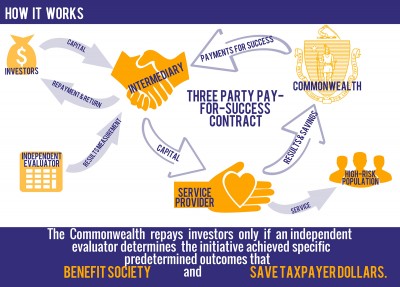
Massachusetts Gov. Deval Patrick announced a “Pay For Success” (PFS) initiative Monday to combat chronic homelessness in the Commonwealth.
The PFS initiative is a long-term project to establish 500 housing units for more than 800 of Massachusetts’ approximately 1,500 chronically homeless individuals, according to a Monday press release. The initiative, which is scheduled to start in early 2015, will leverage philanthropic and private investments to provide funding to ultimately reduce chronic homelessness.
“Pay For Success contracts are a new way Massachusetts is leading the way in this initiative for government to raise resources and to invest in new and innovative approaches that are not only helping provide services, but also saving taxpayer dollars by only paying for programs that work,” said Meghan Kelly, deputy communications director at the Massachusetts Executive Office of Administration and Finance, in an email.
Investors from the private sector and philanthropies invested in the initial “Pay” aspect of the PFS project. If it does produce results, they will be reimbursed for a portion of their investment at a maximum of 5.33 percent, according to the release.
Chronic homelessness is defined as being “long-term or repeated homelessness, often coupled with a disability,” according to the definition on the website of the U.S. Department of Housing and Urban Development. “A chronically homeless individual is someone who has experienced homelessness for a year or longer, or who has experienced at least four episodes of homelessness in the last three years and has a disability.”
Investors include Santander Bank N.A., the Corporation for Supportive Housing and United Way of Massachusetts Bay and Merrimack Valley, Kelly said. Combined, Santander, United Way and CSH privately invested more than $2.5 million and raised $1 million in philanthropic funding for the initiative.
“Government’s role is to help people help themselves,” Patrick said in the release. “It is critical that we reduce the reliance on emergency services and provide individuals safe and stable housing that will help strengthen our communities and last for generations to come.”
In addition to housing provisions, health care services will be made available to the individuals receiving the plan’s benefits.
“The long-term benefits are, besides saving taxpayer dollars in the long-run, by keeping people in long-term housing, but all of the other services that these people are able to receive, reducing health care costs,” Kelly said.
Lyndia Downie, president and executive director of the Pine Street Inn, a Boston homeless shelter, said Patrick’s actions show potential for a stronger relationship between state leaders and the homeless population.
“We’re grateful that … Patrick is using social impact bonds to fund new housing for homeless individuals, an important piece of the puzzle in reaching out to homeless individuals,” she said in an email on behalf of the Coalition for Homeless Individuals. “We’re hopeful that state leaders will increase direct funding to homeless shelters throughout the Commonwealth, a critical need for us so that we can provide shelter, healthcare, job training and the other critical services.”
While the Pine Street Inn is a provider for the homeless in Boston, PFS will cater to the chronically homeless across the Commonwealth. Other providers include Action Inc., the Boston Public Health Commission, Duffy Health Center and Friends of the Homeless.
“This is an initiative that is scaling up over the next year, so while we have a list of providers that have already signed on, there are more people that are going to be signing on in the next year,” Kelly said. “We expect this initiative to benefit people across the Commonwealth.”
Several residents said they hope the program will bring changes to the Commonwealth.
“It is truly inspiring to see the Commonwealth take the leading steps in the nation towards ending homelessness,” said Angela Pizzio, 56, of Jamaica Plain. “We need to show other states that our most vulnerable society members deserve stability and dignity.”
Rachel Takeisha, 42, of Dorchester, said this initiative sets itself apart from others because it offers a more permanent solution to homelessness in Massachusetts.
“The homeless will greatly benefit from this initiative because they’ll have access to housing and services that will keep them warm during the long winter months,” she said.
Alex Harry, 62, of East Boston, said she is skeptical of the initiative because it could end if any party involved backs out.
“What happens in six years time when the initiative ends and the chronically homeless are forced back onto the streets?” he said. “Philanthropists and capital investors need to come up with a more permanent solution to this problem. What about the other 900 chronically homeless who won’t receive assistance?”
Sarah Poff contributed to the reporting of this article.


